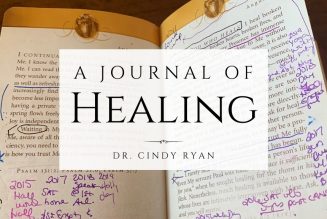
Did you hear the latest research about the attitudes of Millennials? Me neither.
I’m being sarcastic, but kind of serious. It’s good to study the trends and behaviors of the next generation so we can adapt our ministry methods for gospel advance and the edification of those we are called to serve.
Still, my experience tells me that that the kind of ministry that best builds up the body of Christ is one filled with incarnational, intergenerational, gift-giving relationships.
I recently said goodbye to one of my dearest friends, who taught me more about ministry than anyone else I knew. He recently succumbed to cancer in his early eighties. Until this quick-moving disease ushered Him home, Bill was a font of wisdom about how to do ministry. It was timeless wisdom good for dealing with every generation.
Another of my close friends is a Boomer. I can’t tell you how many lengthy phone conversations I’ve had with Rich over the years, gleaning precious insights on family and church life.
I’ve seen this dynamic played out in church life if the leaders are willing to embrace a multi-generational approach. Churches that worship at the altar of relevance, who are constantly chasing the next trend might be tempted to so vigorously divide ministry into age-graded demographics that they create little churches within their church. However, churches who balance generational needs with a multi-generational dynamic foster a rich, other-worldly kind of body life.
This ethic, I think, starts in youth group. We should intentionally push our young people to make friends with older generations and we should intentionally push our older folks to make friends with the younger set. It involves some sacrifice on both ends, for younger types to yield to the wisdom of their elders and for older folks to embrace the energy of and change of a new generation.
Not only does this foster unity and growth in the body, it moves the Church closer to what Christ envisioned: a living organism of people from differing tribes, social classes, and age groups united by their common faith. In other words, nobody will be able to say, at the end of the age, that their local church grew because of market-tested dynamics. They’ll instead say that it was a work of the Spirit of God.
Research is good. Targeted ministry is beneficial. But may it be said of our churches, “I don’t know how any of these people are united. They have nothing in common. Well, except for their like-precious faith.” This is the essence of what it means to be the body of Christ.
Daniel Darling is the Vice President for Communications for the Ethics and Religious Liberty Commission of the Southern Baptist Convention (ERLC). He is a regular contributor to Leadership Journal and the author of several books, including his latest, Activist Faith. He regularly blogs at danieldarling.com.










